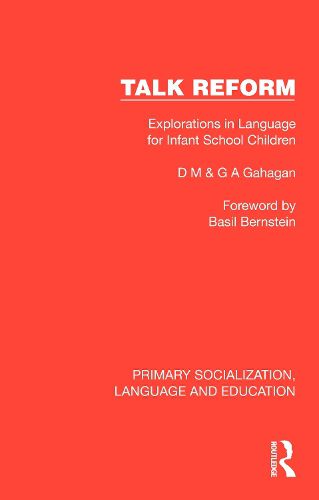Readings Newsletter
Become a Readings Member to make your shopping experience even easier.
Sign in or sign up for free!
You’re not far away from qualifying for FREE standard shipping within Australia
You’ve qualified for FREE standard shipping within Australia
The cart is loading…






Originally published in 1970, Talk Reform describes the development of an exploratory language enrichment programme devised by the authors and carried out by teachers in a group of primary schools in a working-class area of London.
Inspired by Bernstein's theory of different language codes and their relation to educational underachievement, the authors devised a series of situations in the classroom as preconditions for extending language use. Their aim was to reorient the reader to the social functions of language, so that teachers who understood the ideas behind this programme would be able to carry out the activities described as well as those they may have thought up for themselves. The kinds of problems encountered when trying to judge the value of intervention and change in the classroom are discussed and illustrated, from the authors' own research. The authors put forward the view that the social and linguistic skills that could be acquired in the way outlined in their book were crucial to the advancement of the working-class child in the social system. Today it can be read in its historical context.
$9.00 standard shipping within Australia
FREE standard shipping within Australia for orders over $100.00
Express & International shipping calculated at checkout
Originally published in 1970, Talk Reform describes the development of an exploratory language enrichment programme devised by the authors and carried out by teachers in a group of primary schools in a working-class area of London.
Inspired by Bernstein's theory of different language codes and their relation to educational underachievement, the authors devised a series of situations in the classroom as preconditions for extending language use. Their aim was to reorient the reader to the social functions of language, so that teachers who understood the ideas behind this programme would be able to carry out the activities described as well as those they may have thought up for themselves. The kinds of problems encountered when trying to judge the value of intervention and change in the classroom are discussed and illustrated, from the authors' own research. The authors put forward the view that the social and linguistic skills that could be acquired in the way outlined in their book were crucial to the advancement of the working-class child in the social system. Today it can be read in its historical context.